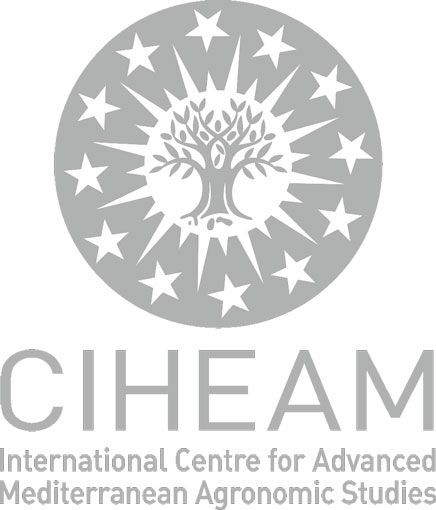RURAL MIGRATION FORUM
Fostering Regional Cooperation on Agriculture, Rural Development and Migration in the Mediterranean Region
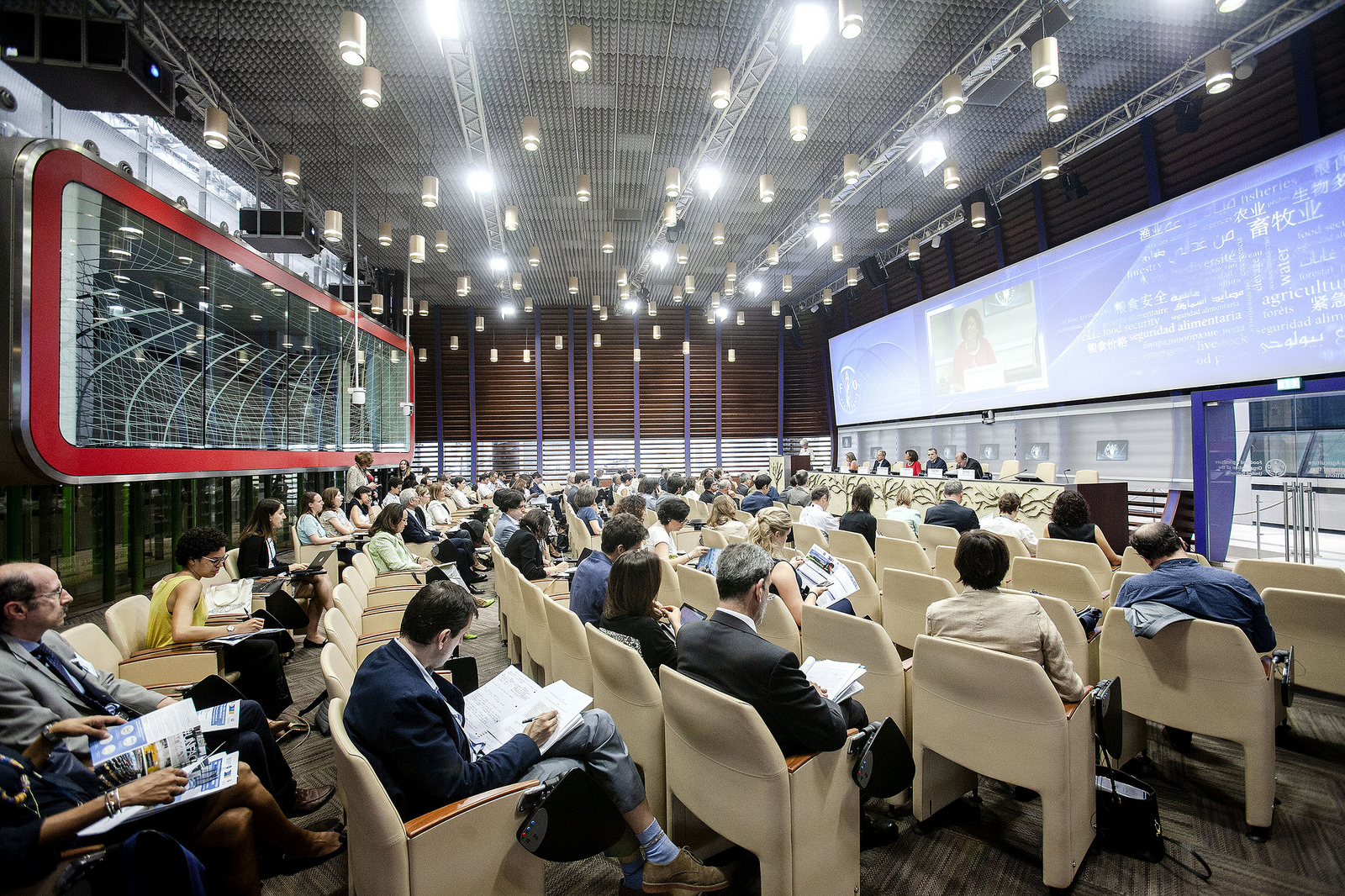
29 May 2018, Rome FAO Headquarters
Following the 11th Ministerial meeting of CIHEAM's Member states focused on the root causes of migration from the point of view of agricultural development and food security (Tirana, 2016) and in line with the CIHEAM Action Plan for the Mediterranean (CAPMED 2015), the CIHEAM jointly organised a Forum with the Food and Agriculture Organization of the United Nations (FAO), the Union for the Mediterranean (UfM) and the European University Institute- Global Governance Programme (EUI), under the patronage of the Italian Ministry of Foreign Affairs and International Cooperation (MAECI), aimed at discussing different perspectives and challenges associated with rural migration dynamics.
This first expert-level meeting took place at the FAO Headquarters, on 29 May 2018 and brought together experts from international institutions, development cooperation agencies, research centres, policy practitioners and civil society organizations.
Migration has a strong agricultural and rural dimension in the Mediterranean. This phenomenon is significant in terms of food production, natural resource management, skill management, education, territorial integration, social protection, Diasporas, gender, and inclusive development. Investing in sustainable agriculture and rural development, climate change adaptation and resilient livelihoods is, therefore, a crucial component of any plan aimed at addressing the current migration challenges in the Mediterranean region.
__________
Agriculture and rural development must be priority sectors for development and cooperation
As stated in the CIHEAM Tirana Declaration (2016) "Agriculture and food security are closely related to reconciliation, peace and stability in the Mediterranean region, and must be considered as priority sectors for these countries and for international cooperation" and as highlighted by the Vice-President of the CIHEAM, Gianni Bonini during the opening session "The Mediterranean has always been a melting pot of populations and cultures, even in times of crisis and conflict. We must preserve this identity and save this uniqueness".
In view of these, with the strong support of the Ministers of Agriculture of its Member States, the CIHEAM has included the issue of rural migration in the Mediterranean in its Strategic Agenda. The CIHEAM biannual report, Mediterra, planned for December 2018, will also be devoted to this important theme.
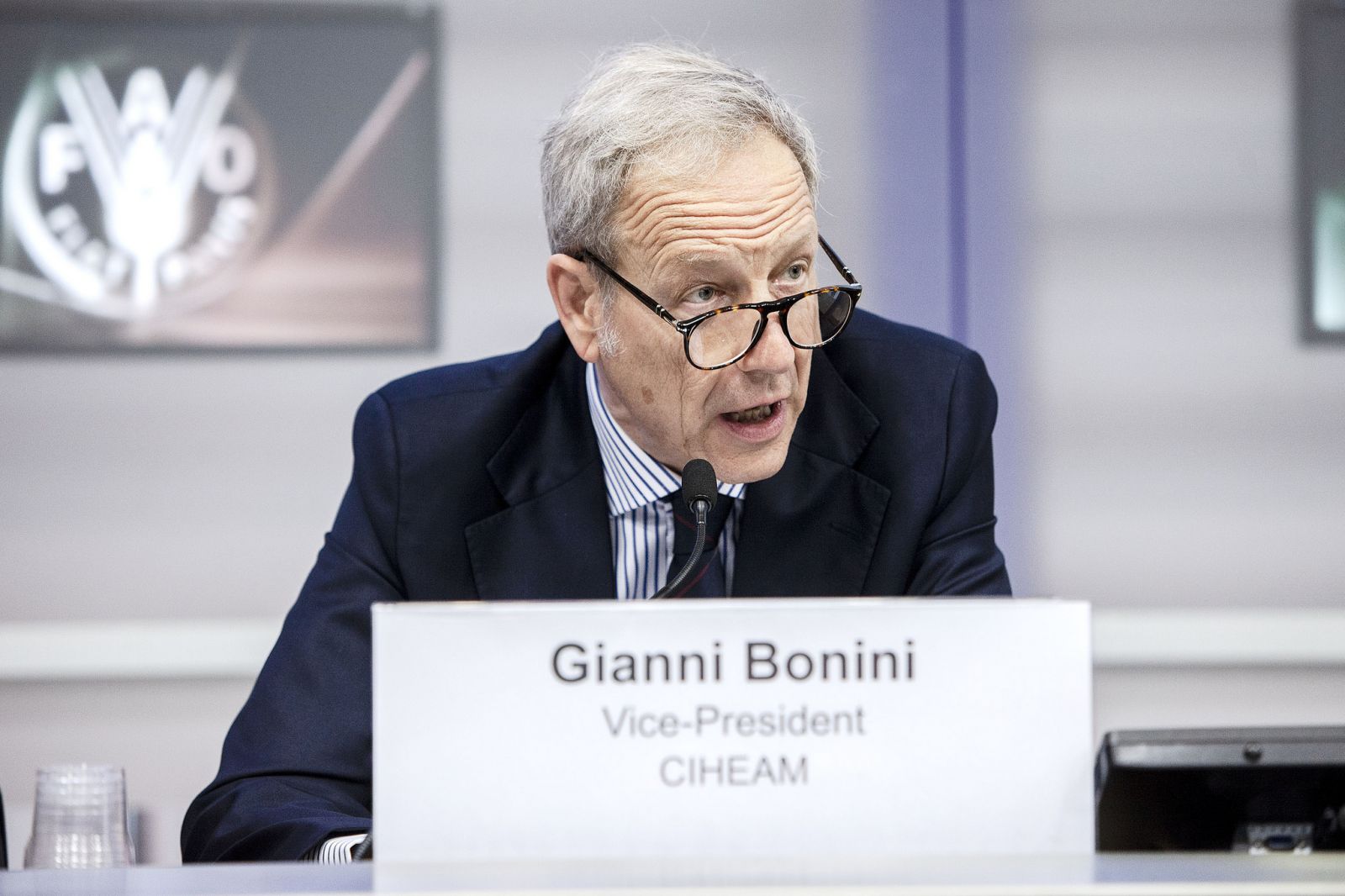
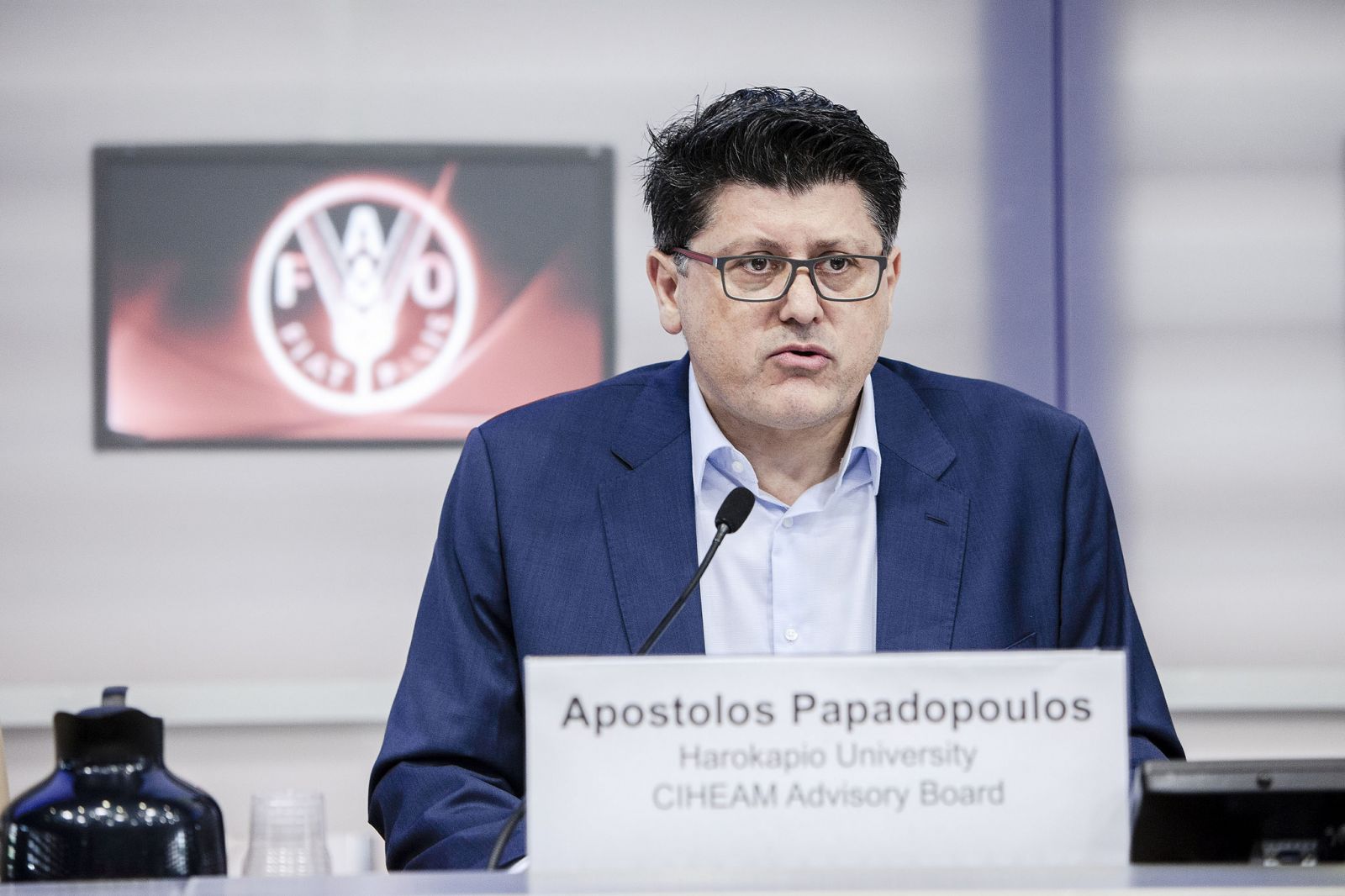
The CIHEAM strives for the implementation of a holistic approach to the rural migration phenomenon, combining operational actions on the ground (projects), long-term dialogue with stakeholders, data productions, scientific research, and publications. An approach that enables a mutual enrichment of different viewpoints and perspectives of a complex and multi-faceted phenomenon that is expected to last.
Among the projects presented during the Forum, it is worth mentioning the CIHEAM projects in southern Tunisia and that of fishermen in the Kerkennah archipelago aimed at promoting an alternative to youth migration, or the project in Syria focused on increasing resilience and sustainable self-reliance of populations - implemented in full collaboration with national and local authorities, that contribute to ensure the recovery from shocks (e.g. conflicts) and the setting-up of suitable conditions for the re-launching of the development process.
.jpg)
These projects contribute to strengthening the resilience of territories and allow agriculture to be truly recognized as a promising sector, not only in terms of food security, environmental protection but also as a sector that has the potential to create jobs in rural or even peri-urban areas. These objectives cannot be achieved without appropriate, coordinated, convergent, coherent public policies but also without intelligent public-private partnerships that are concerned with sustainability in its three dimensions: economic, environmental and social.
______________
PUBLICATION: MEDITERRA (DECEMBER 2018)
Inclusion and Migration Challenges around the Mediterranean
CIHEAM- Agence Française de Développement (AFD)
The CIHEAM and l'Agence Française de Développement (AFD) are publishing the Mediterra 2018 report, which is aimed at improving knowledge on rural migrations in the Mediterranean from the perspective of rural and agricultural development in order to identify sustainable, inclusive and long-term solutions.
__________
JOINT PRESS RELEASE UNFAO-CIHEAM-UFM-EUI
FOSTERING REGIONAL COOPERATION ON AGRICULTURE, RURAL DEVELOPMENT AND MIGRATION IN THE MEDITERRANEAN REGION
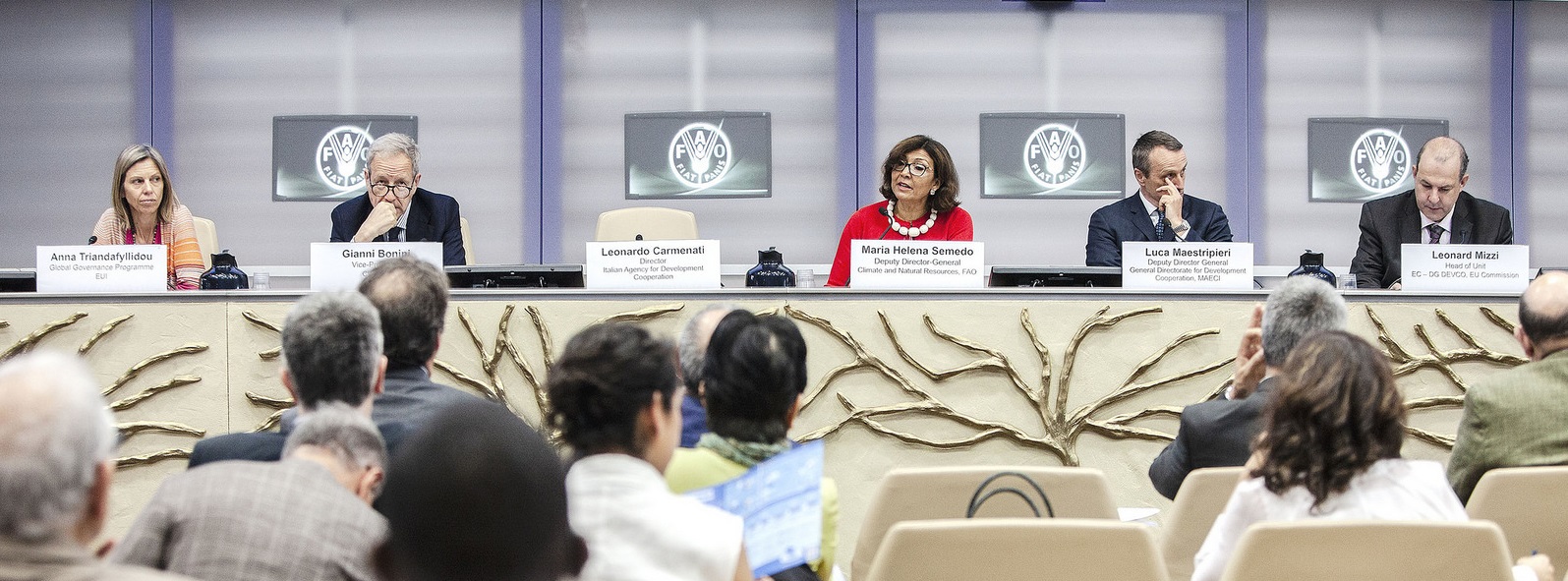
CIHEAM, FAO, EUI and UfM, under the patronage of the MAECI, launch the first Forum on Agriculture, Rural development, and Migrations in the Mediterranean
29 May 2018, Rome, FAO Headquarters
#RuralMigrationForum
A "better understanding of the drivers and impacts of migrations for forward-looking policies and programmes" was the main objective of the Forum on Agriculture, Rural Development and Migrations in the Mediterranean, jointly organised by the International Centre for Advanced Mediterranean Agronomic Studies (CIHEAM), the Food and Agriculture Organization of the United Nations (FAO), the Union for the Mediterranean (UfM) and the European University Institute- Global Governance Programme (EUI), under the patronage of the Italian Ministry of Foreign Affairs and International Cooperation (MAECI).This first expert-level meeting took place at the FAO Headquarters and brought together experts from international institutions, development cooperation agencies, research centres, policy practitioners and civil society organisations.
The Forum provided a first overview of the challenges and opportunities associated to rural migratory dynamics in the Mediterranean as well as main policies and strategies designed to harness the potential of agriculture and rural mobility, collecting different perspectives from experts from the region.
As indicated in the UfM Roadmap for Action (2017), "the Mediterranean has always been an area of mobility and migration". Nevertheless, as the current refugee and irregular migration crises clearly show, addressing the adverse drivers of migration is essential to regional stability. Likewise the CIHEAM Tirana Declaration (2016) states that "agriculture and food security are closely related to reconciliation, peace and stability in the Mediterranean region, and must be considered as priority sectors for these countries and for the international cooperation".
Migration has a strong agricultural and rural dimension. A large share of migrants originate from rural areas, characterized by growing rates of poverty and unemployment. The implications of this phenomenon are significant in terms of food production, natural resource management, skill management, education, territorial integration, social protection, Diasporas, gender, and inclusive development. It follows that investing in sustainable agriculture and rural development, climate change adaptation and resilient livelihoods is a crucial component of any plan to tackle the current migration challenges in the Mediterranean region.
At the crossroads of three continents, all Mediterranean countries are areas of origin, destination and transit of migratory flows coming from sub-Saharan Africa, the Middle East and Central Asia. Even if agriculture and rural livelihoods are priority fields in policy agendas in all countries across the region, public investments have consistently decreased in recent decades. In this context, regional processes may help tackling long-term drivers by creating synergies and fostering projects devoted to social and inclusive development.
If well managed, internal and external migrations can contribute to economic growth, poverty reduction and food security of the Mediterranean region, through knowledge, skills and technology transfer. But the potential benefits of migratory movements must be actively promoted through policies that jointly harness its potential and minimize its negative effects.
The complexity of migratory dynamics and their significant impact on the future of agrarian and rural systems across the Mediterranean, call for dialogue and exchange at regional level among countries of origin, transit and destination, across different levels of governance as well as across policy sectors. Moreover, research and innovation play a relevant role in understanding the heterogeneous drivers and patterns of rural migration, thus the need for strengthening nexus between policy, cooperation and research.
The participants of the Forum proposed concrete recommendations for moving forward regional cooperation in this respect, which could serve as a basis for future research activities and joint initiatives.
As part of its work on Migration, FAO is co-chairing, together with the International Organization for Migration, the Global Migration Group, a consortium of UN agencies advising member states on the Global Compact for Safe, Orderly and Regular Migration due to be adopted in December 2018. In this context, the recommendations stem from the Forum will be channeled into the Global Compact negotiation process, if and as required by Member States.
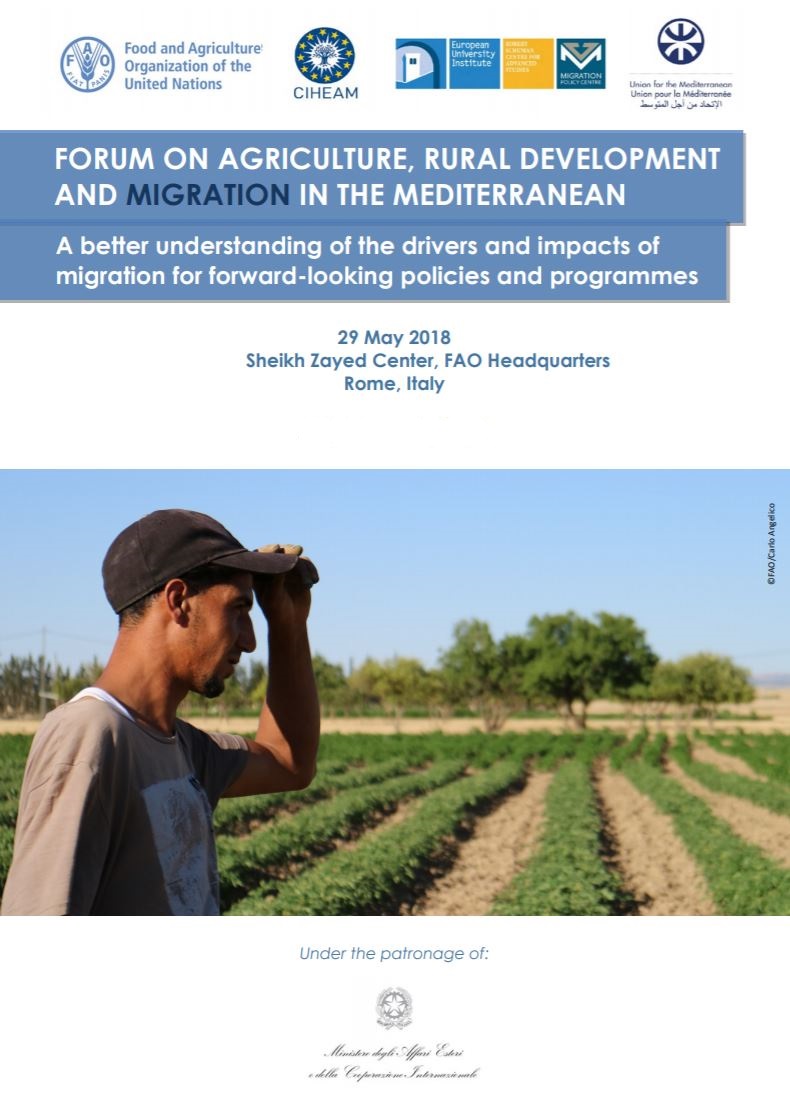
PROGRAMME GUIDE
WEBCAST
#RuralMigrationForum
___________
FOLLOW US!
Website: http://www.ciheam.org/en/
Facebook: www.facebook.com/CIHEAM.Organisation
Twitter: https://twitter.com/CIHEAM
CIHEAM PRESS REVIEW: https://www.scoop.it/t/ciheam-press-review

CIHEAM
General Secretariat
11 rue Newton - 75116 - Paris - France
www.ciheam.org
+33 (0)1 53 23 91 00
secretariat@ciheam.org
Unsuscribe from this list
 |
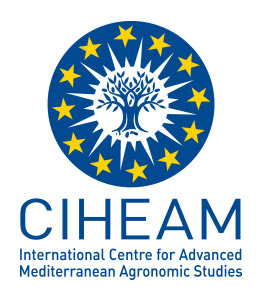
.JPG)
